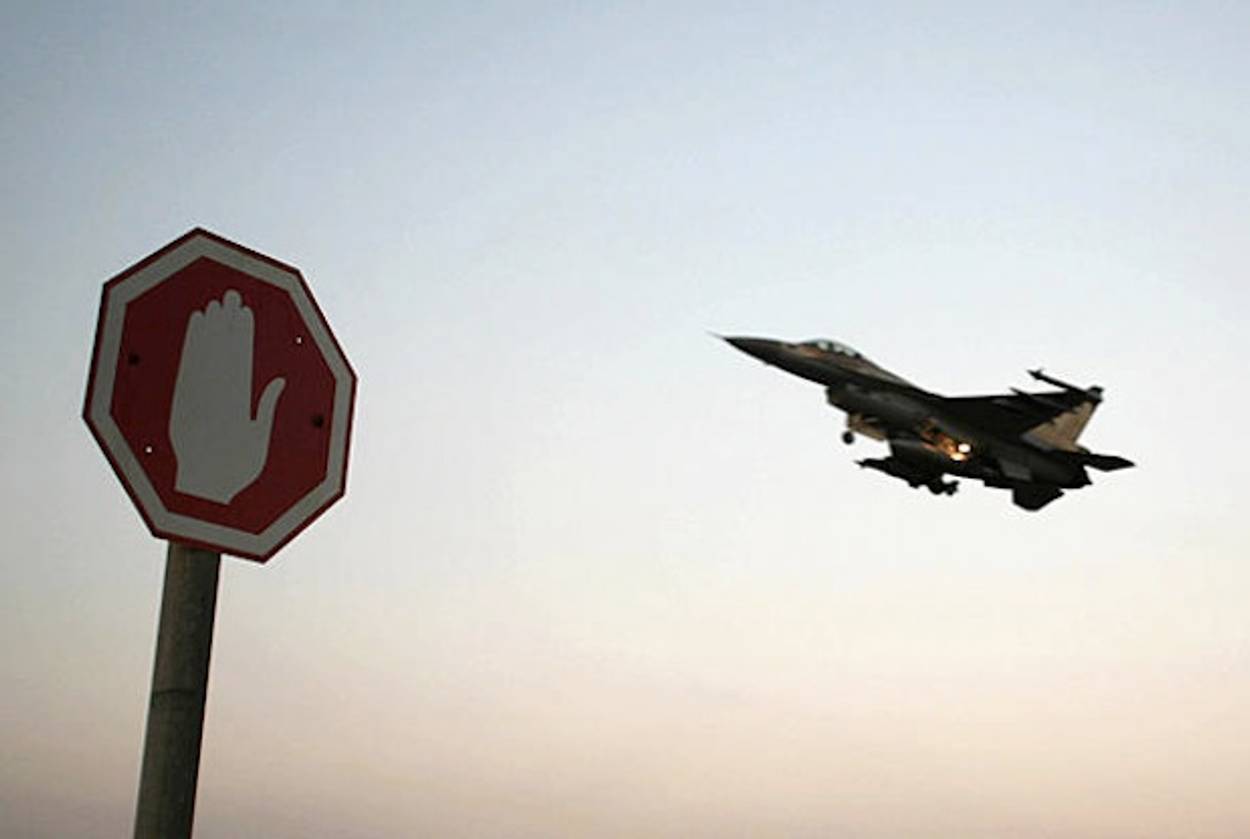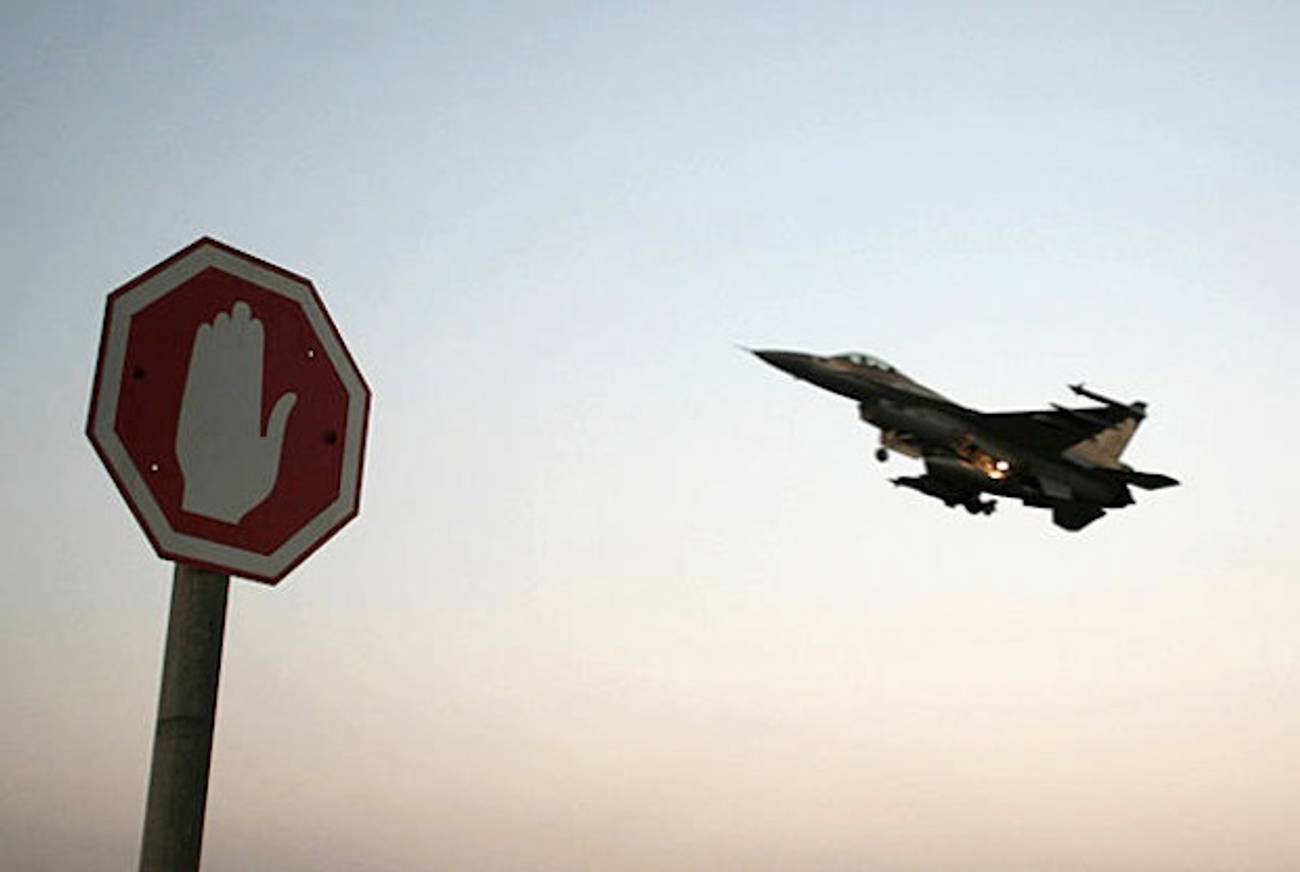About Those Israeli Strikes on Syria
What some of the smart folks are saying




As you may have heard, Israel is being blamed/credited with two airstrikes over the weekend on what’s believed to be Syrian missile sites. For some context, there is a civil war in Syria and, in late January, Israeli planes reportedly struck a weapons convoy heading west into Lebanon near the border between Syria and Lebanon.
The purpose of the not-so-mysterious blasts near Damascus? According to early conjection, a few objectives were achieved: Among them, the destruction of chemical weapons believed to be bound for Hezbollah on the Iran-Syria-Hezbollah Terror Expressway as well as many messages to Iran, one specifically about Israeli capability, boldness, and resolve.
More narrowly, according to some regional analysts, the strikes were viewed in Israeli security circles as a necessity to combat the proliferation of a powerful missile known as the Fateh-110, which has the capacity to strike nearly anywhere in Israel with more accuracy (especially if fired from southern Lebanon by Hezbollah) and can be fired easily.
On April 21, Defense Minister Moshe Ya’alon announced three red lines regarding the situation in Syria: chemical weapons crossing into rogue hands; a cross-border attack; and the transfer of sophisticated weapons to Hezbollah. The Fateh-110 missiles (also known as M600s) – the target of the Damascus strikes — certainly nuzzle up to that third line. Apparently, for Israel’s decision-makers these past few days, they cross it.
The Iranian-developed missiles have a 250-300 kilometer range, carry a 500-600 kilogram warhead — depending on the model — and, significantly, have a relatively advanced guidance system, making them more precise than the heavier and more lethal Scud D.
The strikes themselves, while in some ways a boon to the Syrian rebels as an emblem of a weakening Syrian dictator Bashar Assad, won’t endear Israel to the rebels because even in the Middle East, the enemy of my enemy is still considered the Zionist occupier. As Blake Hounshell noted over the weekend:
If it was indeed Israel, wow, this is awkward for the Syrian opposition. The regime will seek to exploit the raids to tie the rebels to the Zionist entity, after spending two years painting them as an undifferentiated mass of “terrorist gangs.” (Syrian television is already testing out this line, according to Reuters: “The new Israeli attack is an attempt to raise the morale of the terrorist groups which have been reeling from strikes by our noble army.”)
But the propaganda can cut both ways. The rebels can point to the Israeli attacks as yet more evidence that Assad’s army is for attacking Syrians, not defending the country. It’s not clear to me which argument will carry the day.
The Israeli attacks led some like Senator John McCain in Washington, D.C. to conclude that Western military engagement in Syria would not be met with a robust response from the Syrian air defense, which has been a concern.
“The Israelis seem to be able to penetrate it fairly easily,” Mr. McCain said on “Fox News Sunday.” He went on to say that the United States would be capable of disabling the Syrian air defenses on the ground “with cruise missiles, cratering their runways, where all of these supplies, by the way, from Iran and Russia are coming in by air.” Patriot missile batteries already installed in Turkey, he argued, could defend a safe zone to protect rebels and refugees.
In the meantime, Israel is keeping quiet about the attacks and Assad is threatening to retaliate.
Other notes: An early report this morning suggests that 42 elite soldiers died in the strike on the Syrian missile compound. Haifa Mayor Yona Yahav sought to prepare the city should it become the target of a Syrian retaliation.
Adam Chandler was previously a staff writer at Tablet. His work has appeared in the New York Times, the Wall Street Journal, the Atlantic, Slate, Esquire, New York, and elsewhere. He tweets @allmychandler.